Nissan Leaf Vs Chevrolet Bolt: Which EV is Right for You?

Consumers in the market for an electric car don’t have a lot of options.
There aren’t many battery electric vehicles on the market today and there are even fewer choices if you’re on a budget.
SEE ALSO: Nissan Leaf Review
In this post, we’re going to compare two of the most affordable electric cars on sale, the Nissan Leaf and Chevrolet Bolt, to help you determine which is better suited to your needs. These two EVs are quite similar in their shape, size, performance, and overall value for money, but let’s get into the details and see which is the superior product for your needs and lifestyle.
Styling/Design
Nissan Leaf: the Nissan Leaf is rather bulbous looking, but this current model looks much less swollen than the first-generation Nissan Leaf, looking much like a regular hatchback. The styling is unassuming and inoffensive with no dramatic styling elements or outlandish LED light signatures. The available two-tone exterior, which gives the Leaf a black roof, also improves the overall style of the EV, in our opinion.
Chevrolet Bolt: the Chevrolet Bolt is a bit more daring than the Leaf with tall, upright proportions that are a bit awkward, if you ask us. Chevrolet describes the Bolt as a crossover, but with minimal ground clearance and a tall greenhouse allowing for lots of headroom, we’d say it’s shaped more like a people mover/MPV.
Bottom Line: With similar shapes and similar styling elements, the Nissan Leaf and Chevrolet Bolt aren’t so different from each other. The Bolt is a bit more upright and spacious, while the Leaf is a bit lower and sportier.
Space/Practicality
Leaf: the Leaf is a five-seat hatchback with 92.4 cubic feet of interior passenger volume. It has 41.2 inches of headroom in the front and 37.3-inches of headroom in the rear, along with a cargo volume of 23.6 cu-ft with the rear seat up. Folding the rear seat down nets you an extra 6.5 cu-ft of cargo space for a total of 30 cu-ft.
Bolt: the Bolt is also a five-seat hatch but thanks to its upright shape, it has a bit more space than the Leaf at 94.4 cu-ft of passenger volume. Front passenger headroom is less than the Leaf at 39.7 inches, but the rear passenger headroom is superior at 37.9 inches. The Bolt offers 16.9 cu-ft of cargo space behind the second-row seat, but the total cargo volume grows to 56.6 cu-ft with it folded down.
Bottom Line: the Bolt is the more spacious vehicle with both regards to passenger volume and cargo volume. If you are in the need for an affordable EV with cargo space, it may be the vehicle for you. Neither of these vehicles are very large, though, and may not be well-suited to larger families or those who frequently have lots of cargo to carry.
SEE ALSO: 2019 Chevrolet Bolt EV Review
Powertrains
Leaf: The Nissan Leaf is powered by a single synchronous electric motor powering the front wheels, which is rated at 110 hp and 210 lb-ft of torque. The standard 30 kWh battery pack provides an EPA estimated driving range of 112 miles, or 180 kilometers. It should do 0-60 mph in around 8s and the top speed is 93 mph. With a DC fast charger, the battery will charge from flat to within 80 percent of its capacity in around 30 minutes. With a 22 kWh charger, charging from flat to full takes about 4.5 hours.
Nissan recently debuted the new Leaf Plus as well, which has a larger 64 kWh battery that provides an estimated driving range of 226 miles. The Leaf Plus gets a more powerful motor too, which is now rated at around 215 hp and 250 lb-ft of torque. The Leaf Plus will also have fast charging at 70 kWh with a 100 kWh peak, enabling the larger 64 kWh battery to charge in about the same amount of time as the 30 kWh battery pack.
Nissan offers a warranty on the battery pack of 8 years or 100,000 miles – whichever comes first.
Bolt: the Chevrolet Bolt is only offered with one powertrain, which consists of a single permanent magnetic drive motor mounted on the front axle and a 60 kWh battery pack. The motor is rated at 200 hp and 260 lb-ft of torque, while the battery provides an estimated driving range of 238 miles. A good bit quicker than the Leaf, the Bolt will accelerate from 0-60 mph in about 6.5s and top out at 91 mph.
The Bolt can charge from flat to 80 percent capacity in one hour using the optional 80 kWh DC fast charger. A 120v outlet can add 4 miles of range per hour, while the Bolt’s standard 240v wall charger can provide a full charge in 9.5 hours. Chevrolet provides a battery warranty of 8 years or 100,000 miles, whichever comes first.
ALSO SEE: Chevrolet Bolt EV Review: Is it Viable if You Don’t Live in the City?
Bottom Line: the Chevrolet Bolt has the superior powertrain right now. It will be interesting to see how competitive the new Leaf Plus is once it arrives, though, and the Leaf has the advantage in offering two powertrains, which allows Nissan to offer a cheaper version and a more expensive version. We like the way both of these electric powertrains drive, though. Instant acceleration and low centers of gravity make both quite fun.
Driving Dynamics
Leaf: When we drove the Nissan Leaf, our editor said it was “quick and gets to highway speeds convincingly enough.” They also liked the linear power delivery and said “putting your foot down is very satisfying,” but that it’s a shame you can only do so for “150 miles or so.” In our first drive review of the EV, we said the “steering is light, the cabin is relatively quiet and the ride is smooth.”
Bolt: When we drove the 2019 Chevrolet Bolt, we said it was “comfortable,” with its suspension “soaking up,” the bumpy road we were driving on with ease. We also noted that the “body roll across turns feels composed and in control,” and that the “brake feel underfoot is very natural, less stiff and harsh than other EVs and hybrids.” The handling wasn’t great however, with the “combination of flat electric steering and tall, upright shape,” making the Bolt EV jittery through corners and under acceleration. The low-resistance tires were noisy as well.
SEE ALSO: 2019 Hyundai Kona Electric Review
Bottom Line: both the Leaf and Bolt are relatively fun to drive with their torquey powertrains and tight suspension, but the Leaf is a bit more suited to spirited driving thanks to its low center of gravity. If performance is what you’re after, the new Leaf Plus may be the way to go.
Technology
Leaf: these are EVs, so technology is important. The Leaf does not disappoint, with a standard 7.0-inch touchscreen with Android Auto and Apple CarPlay and a digital dash display. The most impressive tech feature is the available Pro Pilot Assist suite of active safety technologies, which includes highway drive assist with lane keep and a stop and go, a driver fatigue monitor, automatic emergency braking, a 360-degree camera, rear cross traffic alert and high-beam assistance. As our editor put it, the Leaf is “loaded with helpful tech.”
Bolt: the Bolt’s technology is decent, though not quite as impressive. It comes with a standard 10.2-inch touchscreen with Apple CarPlay and Android Auto, a crisp 8-inch digital driver’s display and an available 4G LTE wi-fi hotspot. The active safety tech isn’t quite as impressive here, unfortunately, with the Bolt having no highway drive assist features. It does offer available forward collision and automatic braking with pedestrian detection, though.
Bottom Line: the Leaf has a greater abundance of technology and more active safety technology. While the Bolt’s 10.2-inch touchscreen and 8-inch drivers display are both extremely crisp and high quality, safety technology is much more important and thus the Leaf gets the technology section win.
SEE ALSO: Hyundai Ioniq Electric Review
Pricing
Nissan Leaf: the Nissan Leaf starts at $29,990 in the United States before destination and tax. The Nissan Leaf Plus has not yet been priced, but we’re expecting it to start in the mid $30,000 range. It will still undercut the Chevrolet Bolt, we assume. Speaking of which…
Chevrolet Bolt: the Chevrolet Bolt starts at $36,620 in the United States. This makes it quite a bit more expensive than the Leaf, but with more power, more space and more range, the premium is justified.
Bottom Line: the Leaf is much more affordable, but the Bolt backs up its price premium by being a more usable everyday package with regards to both range and interior/cargo space. If the Leaf Plus undercuts the $36k Bolt in pricing, it could prove to be better value for money.
The Verdict: Nissan Leaf vs Chevrolet Bolt
The Nissan Leaf is the best-selling EV in the world for a reason. It’s an affordable and a no-nonsense way to get around on battery electric power. With unassuming looks, usable range and an approachable price tag, the Leaf is great value for money and the Leaf Plus should be an even better deal.
The Chevrolet Bolt is a bit more well executed, in our opinion, but is more expensive and is a bit clumsy to drive with regards to handling. It will be interesting to compare the Bolt, which is currently faster and has better range than the Leaf, to the forthcoming Leaf Plus.
If you are going for value, go for the Leaf. But if you are okay spending a little bit more money an don’t mind the weird looks, the Bolt may be the EV for you. Another EV to consider is the Hyundai Kona EV, which may offer a good balance between these two but is very limited in its availability.

Sam McEachern holds a diploma in journalism from St. Clair College in Windsor, Ontario, and has been covering the automotive industry for over 5 years. He conducts reviews and writes AutoGuide's news content. He's a die-hard motorsports fan with a passion for performance cars of all sorts.
More by Sam McEachern



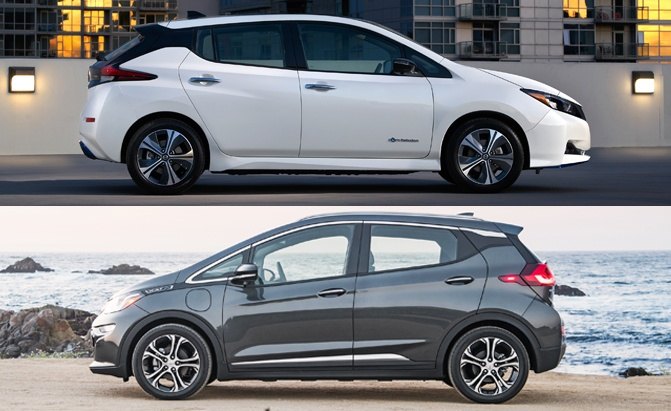

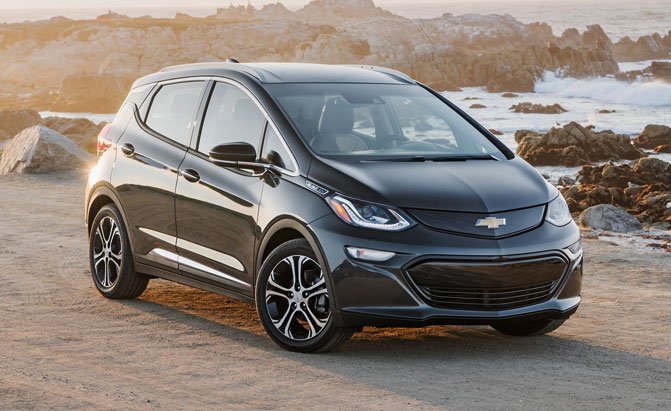



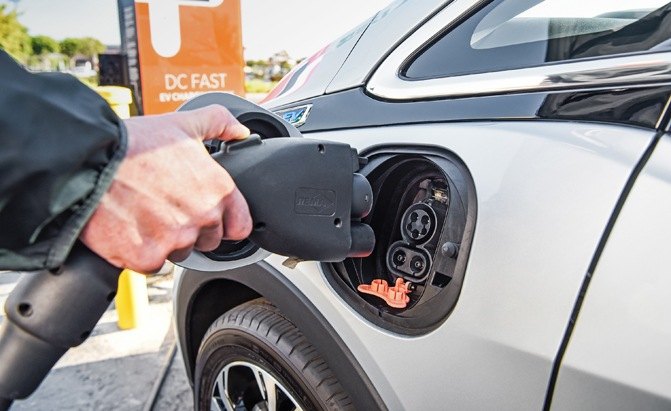

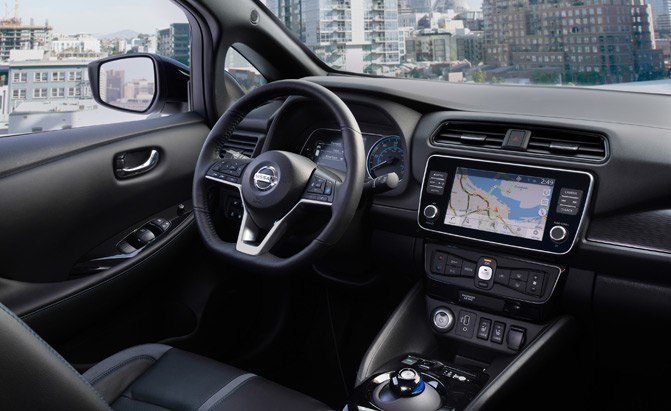















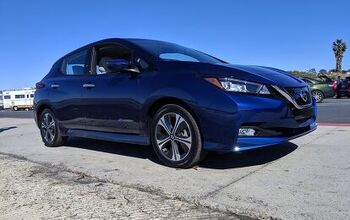
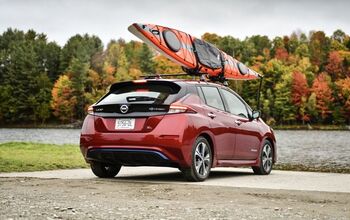
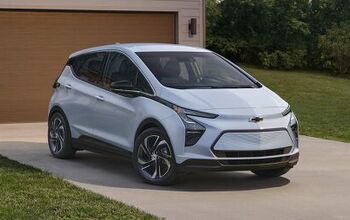
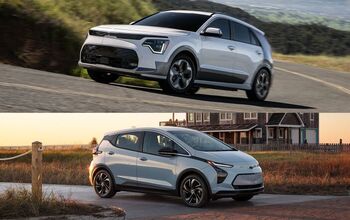


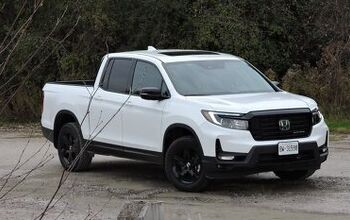



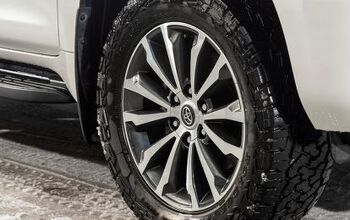
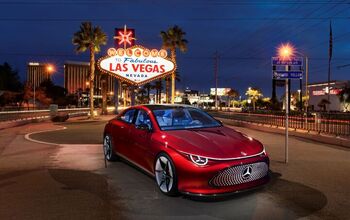
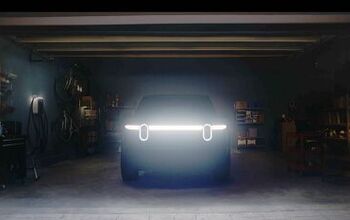

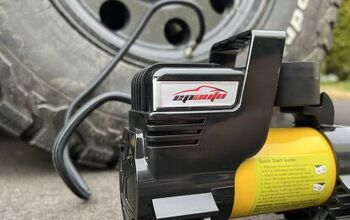
Comments
Join the conversation